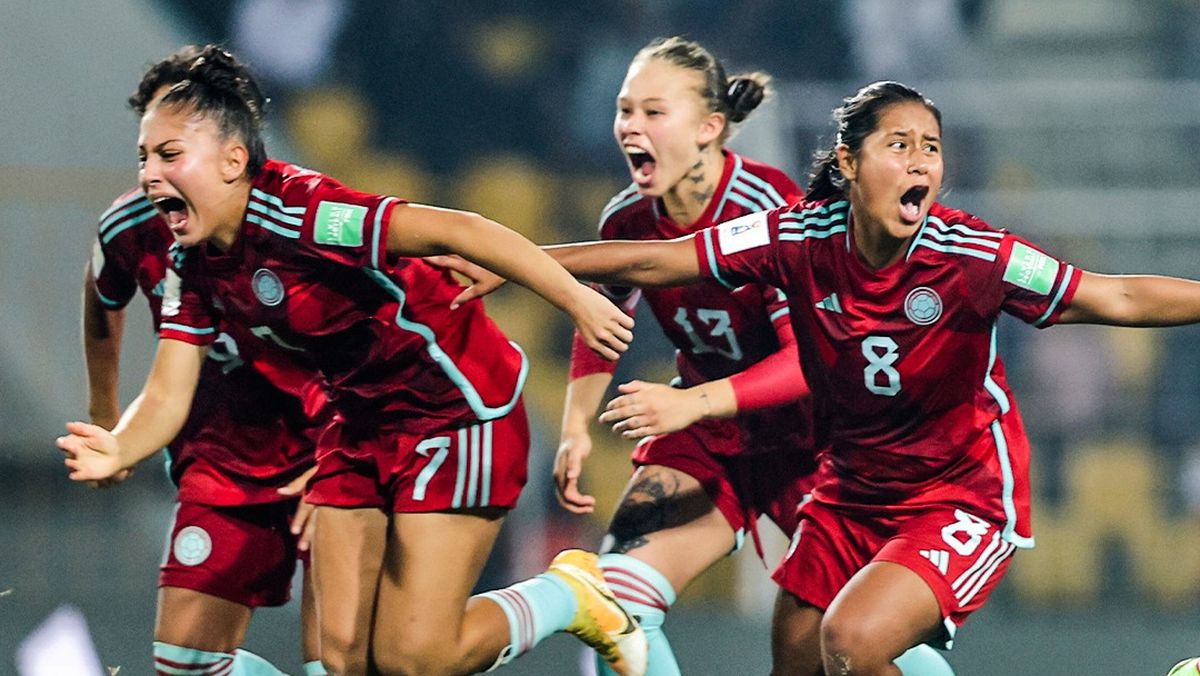2023 is the year to ensure support for women's soccer in Colombia, says Fernando Jaramillo, president of Dimayor.
“We definitely need to break this vicious circle of lack of exposure, low attendance at stadiums and commitment from the private sector to women's football,” he says.
The first step will be the definition of the calendar for the women's league for the first semester, which will be played between January and June or between February and September.
So far there are 17 confirmed teams.
“A more consistent professional league is coming.
We already have interested sponsors and we want to aim for a slightly longer league”, adds Jaramillo.
The league, which President Gustavo Petro and his Sports Minister, María Isabel Urrutia, have pledged to defend, will be decisive for the preparation of the players for the World Cup that will take place from July 20 to August 20.
Additionally, Colombia will host the 2023 Women's Copa Libertadores, the most important tournament in South America, between October 5 and 21.
Conmebol announced a 68% increase in the payments that the participants will receive in this edition.
The upcoming sporting events represent a new opportunity for the country to wear the women's soccer jersey, the one that with the greatest will from its leaders will continue to make history.
Until now, women's soccer has aroused fleeting support and emotions.
In 2022, the women granted the country the joy that had been trapped as a frustrated cry of goal, after the elimination of the men's team from the Qatar World Cup in March.
The positive results on the pitches came thanks to the soccer players who obtained a place in the Australia-New Zealand World Cup this year and the Paris 2024 Olympic Games, by winning the Copa América runner-up against Brazil in July.
Without sufficient support from the sports leadership, they also achieved second place in the South American sub-20 and sub-17 tournaments, and for the first time qualified for the final of a World Cup in any category, including men's.
The youngest were the authors of the sporting feat that brought together millions of people in front of television screens that Wednesday, October 26.
Given the passion of the match that was played against Nigeria, in the State of Goa, in western India, there were school teachers who gave up their classes to broadcast the match.
Captivated by the talent of players like Linda Caicedo, outstanding goalscorer in the championship, the students were more focused than usual.
History that morning was not observed on a classroom board, but on a soccer field on the other side of the world.
The Colombians beat the Africans 5-6 in the collection of penalties.
The goalkeeper Luisa Agudelo, barely 15 years old, saved the shot of one of the rivals and closed the victory, causing shouts and hugs to celebrate.
Four days later, the under-17s faced Spain in the World Cup final in the city of Navi Mumbai, with national support remaining strong more than 15,000 kilometers away.
The match ended 1-0 in favor of the European team that retained the title of champion.
Colombia did not lift the cup, but it ratified the greatest of its triumphs: it sealed a year of glory for women's football that could represent the beginning of a new chapter in its history, without further postponement.
The trajectory of Colombian soccer players, as in other countries, especially in Latin America, has been marked by unequal treatment, without decent wages, low economic recognition - well below that of teams made up of men - and an unstable league.
These realities led the team to raise their fists in protest in the debut of the Copa América against Paraguay, when they played the national anthem.
The "superpowers" have made their way by hand, while the leaders of the Colombian Football Federation have remained indifferent to the conditions, but attentive to praise.
Opportunism has cost its president, Ramón Jesurún, numerous criticisms.
Subscribe here
to the EL PAÍS newsletter on Colombia and receive all the latest information on the country.

